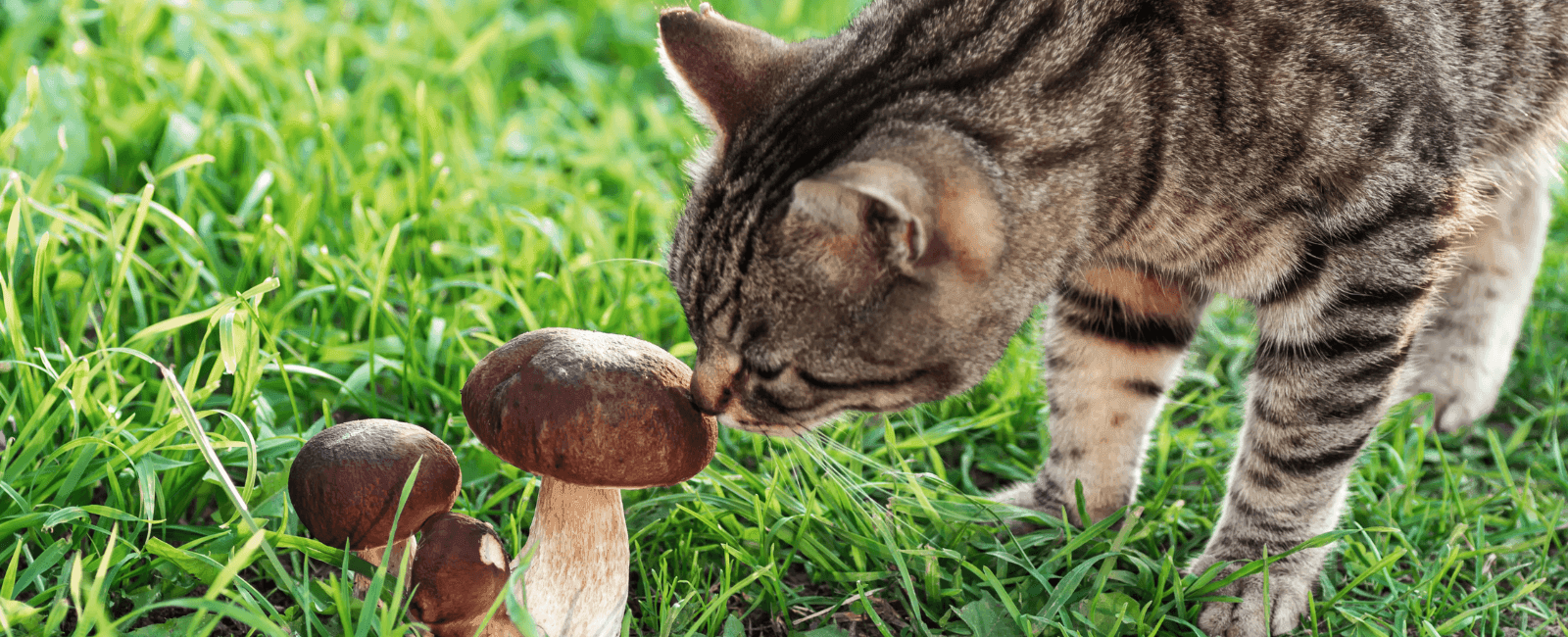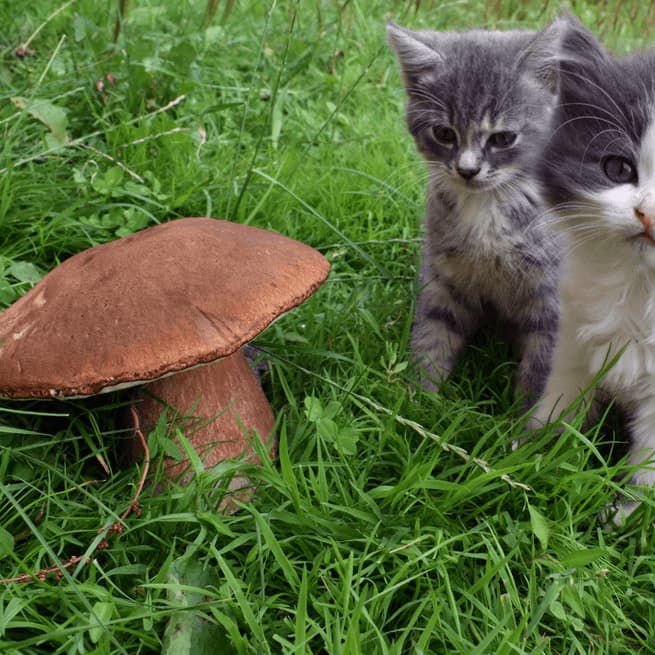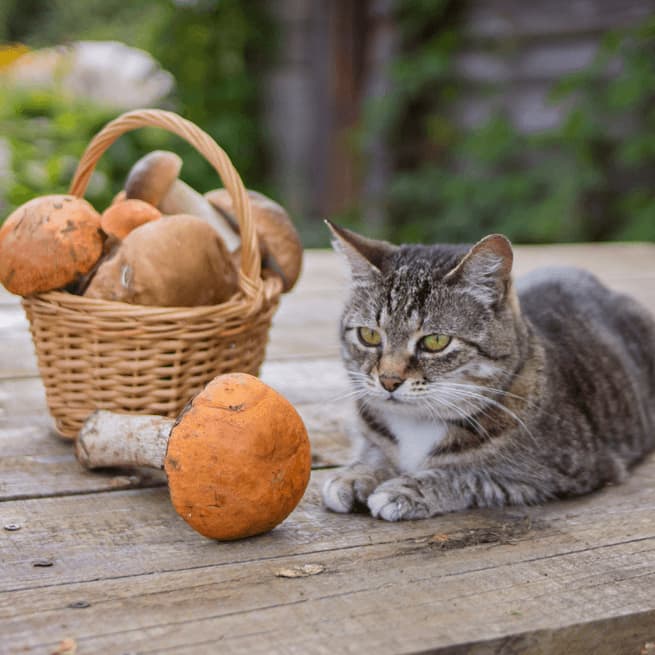

If you have outdoor cats, you may have seen them sniffing, rubbing against, and even biting into wild mushrooms growing in your yard.
As mushrooms aren’t typically an ingredient in store-bought cat food, you may be wondering why your furry friends are so attracted to mushrooms and whether or not it is safe for them to eat!
Why is my cat attracted to mushrooms?

Cats are obligate carnivores, meaning they must eat meat as the main part of their diet. Why, then, would they want to nibble at mushrooms? The answer lies in the proteins found in an amino acid, glutamate, which is found in mushroom caps. Glutamate is what gives mushrooms their savory, umami flavor.
Being carnivorous, cats have evolved to seek savory flavors to get the protein they need to survive. While mushrooms may not have much nutritional content to offer cats (they aren’t as protein-dense as meat), their smell and taste can satisfy a savory craving for cats.
However, many wild mushroom species are severely toxic for humans and may have you wondering if they are toxic to cats, too!
Are mushrooms safe for cats to eat?

The best rule of thumb for those of us who aren’t experts in mushroom classification is this: if you didn’t buy it at a grocery store or farmers market, don’t let your cat eat it. While not all wild mushrooms are poisonous, it’s best to avoid them, as many edible mushrooms can be easily confused with their toxic copycats.
The types of mushrooms that are safe for cats to eat include:
- Cremini or button mushrooms
- Shiitake
- Portobello
- Oyster mushrooms
The most common types of mushrooms that are poisonous to cats
Death cap mushrooms
These are considered the most toxic mushrooms in the fungi world and can cause liver failure in cats. The first signs of poison are yellowing eyes and gastrointestinal upsets.
Destroying Angel mushrooms
These white-capped mushrooms look very similar to death caps and are extremely poisonous.
Hallucinogenic mushrooms
There are many types of psychedelic mushrooms (fly agaric, panther cap, and magic mushrooms, to name a few), all of which are not ok for your cat to eat.
Because of the psilocybin present in their caps, cats will experience extreme neurological symptoms like agitation, fear, and sensitivity to light and sounds. They also may experience physical symptoms like vomiting and a lowered heart rate.
Can I feed mushrooms to my cat?

Store-bought mushrooms are typically ok for your cat to eat in small quantities. However, it’s not recommended, as they can sometimes give your cat an upset stomach and don’t typically offer many health benefits for cats.
If you do want to give your cat the occasional fungi treat, here are a few guidelines to follow:
- Use only store-bought mushrooms. Mushrooms that you would not feed a child (wild foraged mushrooms, “magic mushrooms,” etc.) should also not be given to your cat or kitten.
- Start with fresh mushrooms. Dried or precooked mushrooms, mushroom soups, and canned mushrooms often have salt and preservatives that aren’t good for your cat to eat.
- If using cooked mushrooms, do not use salt, oil, or seasoning. This is a great rule of thumb when serving your cat any at-home meal. Boil the mushrooms in plain water, and do not use salt or oil when serving. These additives can upset your cat’s stomach, cause weight gain, and lead to poor health issues over time.
What if my cat has eaten a poisonous mushroom?

The most common signs of mushroom poisoning in cats are gastrointestinal issues and nervous system issues. These include: Vomiting
- Diarrhea
- Loss of appetite
- Drooling
- Lowered heart rate
- Disorientation
- Lowered energy
If you suspect your cat has ingested a wild mushroom and is showing any of these symptoms, it’s best to take it to the vet immediately. To treat the poisoning, they might need to use certain methods, like activated charcoal cleansing, to flush out the toxins.
As a cat owner, we know that you take your feline friend’s health very seriously. Since there are so many types of wild mushrooms, and accurately categorizing their species can be difficult, we recommend only feeding your cats store-bought mushrooms on rare occasions. We also suggest consulting your cat’s veterinarian before introducing new foods like mushrooms.
Even if your cat may not experience the same health benefits we can with mushrooms, you can still enjoy the fantastic nutritional boosts from mushroom tinctures, supplements, and recipes!


